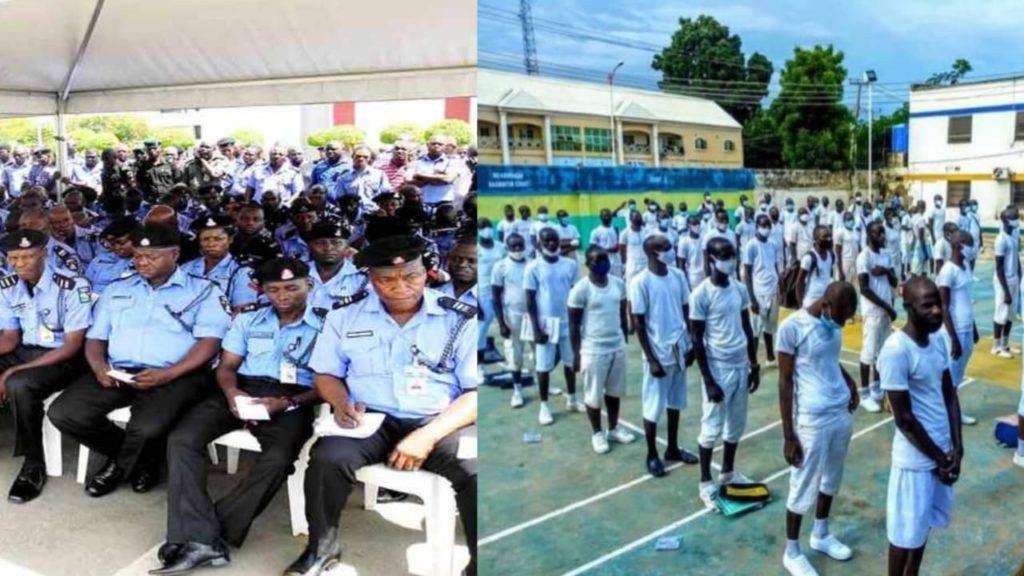The Police Service Commission (PSC) has officially declared the kickstart of recruitment for Nigerians into the Constable Cadre of the Nigeria Police Force. Scheduled to commence on Monday, January 8th, 2024, this recruitment drive will span the entirety of the federation, encompassing physical and credentials screenings for successful applicants. This initiative adheres strictly to the Federal Character Commission’s stipulated requirements.
Addressing the PSC staff during a pre-deployment briefing at the Police Service Commission’s headquarters, Chairman Dr. Solomon Arase (IGP Rtd) emphasized the monumental nature of this endeavor. He articulated, “This recruitment exercise transcends mere hiring; it’s an epic saga, where every action and decision resonates through time.” Dr. Arase urged the staff to recognize their pivotal roles, affirming that their conduct shapes the perception of the Commission and forges its enduring legacy.
The Chairman’s impassioned charge implored the staff to embrace this responsibility with unwavering professionalism and integrity. He underscored the far-reaching impact of their actions, stressing that they carry the weight of the nation’s aspirations for a just and secure future. Moreover, Dr. Arase highlighted the exercise’s significance, marking the Police Service Commission’s first recruitment since the landmark Supreme Court Judgment of July 20th, 2023. This judgment reaffirmed the Commission’s primary and exclusive role in Nigeria Police Force recruitment processes.
A Transformative Chapter Unfolds: PSC Staff Called to Uphold the Gold Standard
The Chairman’s address delineated the pivotal role of this recruitment in heralding a new era for the Police Service Commission. Dr. Arase articulated, “We stand at the precipice of a new era, and it is our solemn duty to ensure that this exercise establishes the gold standard for future recruitments.” His words underscored the gravity of this moment, emphasizing the need for this initiative to set a benchmark, shaping the foundation for forthcoming recruitments.

With a profound understanding of the Police Service Commission’s elevated responsibility, the Chairman underscored the staff’s entrusted duty. He urged them to perceive this opportunity as a gateway to sculpting the nation’s future, reinforcing the imperative of upholding professionalism, integrity, and a profound sense of national duty. Dr. Arase reiterated that their individual and collective actions during this recruitment will reverberate through the annals of the Police Service Commission’s history, solidifying its reputation and shaping its enduring legacy.
Police Service Commission’s Vision: Building a Just & Secure Future
The Chairman’s address culminated with an impassioned vision for the future. Dr. Arase stressed that this recruitment process stands as a beacon illuminating the path towards a just and secure future for Nigeria. Emphasizing the weighty responsibility placed upon the Police Service Commission’s shoulders, he articulated the pivotal role each staff member holds in contributing to the nation’s aspirations. This recruitment serves as a testament to the Commission’s commitment to forging a police force that mirrors the values and ideals of a progressive and equitable society.
The Chairman’s address served not only as a clarion call to action but also as an invocation of responsibility and duty. It echoed a resonant commitment to charting a path towards a police force rooted in professionalism, integrity, and a steadfast dedication to the nation’s welfare. As the recruitment commences, the Police Service Commission stands poised to script a new chapter, laying the cornerstone for future endeavors in fostering a secure and just society.
Police Service Commission: Demand for Transparency in Police Recruitment
In response to the ongoing nationwide recruitment of police officers, John Tyler Echefu, a prominent figure in X, has fervently advocated for transparency in this crucial exercise. Emphasizing the need for openness and fairness, Echefu’s call resonates with the aspirations of many Nigerians concerned about the integrity of the recruitment process within the police force.
Highlighting the critical significance of a transparent recruitment process, Echefu’s demand is underscored by the necessity to eliminate any biases or favoritism that might compromise the quality and credibility of the incoming police officers. This appeal comes at a time when public trust in law enforcement agencies is under scrutiny, emphasizing the imperative for an impartial and meticulously conducted recruitment exercise.
Raising the Bar: Elevating Educational Standards for Police Recruitment
Furthermore, John Tyler Echefu has advocated for a pivotal shift in the criteria for recruitment, suggesting a discontinuation of the enrollment of school certificate holders into the Nigerian police force. Instead, he proposes the establishment of a minimum educational requirement of a university degree for enlistment, citing the need for enhanced skills and intellectual preparedness among police officers.

Echefu’s proposal posits that a university degree would equip aspiring officers with a robust educational foundation essential for navigating multifaceted challenges encountered in the line of duty. By emphasizing the acquisition of critical thinking skills through higher education, the initiative aims to foster a cadre of police officers capable of comprehensively addressing the complexities of contemporary law enforcement.
Echefu’s argument aligns with the broader notion that a more educated police force could substantially contribute to a more professional and competent law enforcement body. This paradigm shift could potentially fortify the Nigerian police with officers who possess an enhanced understanding of societal issues, thereby augmenting their ability to proactively engage with diverse communities and effectively tackle evolving criminal landscapes.
This new standard, if implemented, could not only elevate the overall quality of the police force but also foster a culture of ongoing professional development among officers, nurturing a cohort of individuals equipped with diverse academic insights to tackle the exigencies of modern policing.
Table of Contents
Discover more from OGM News NG
Subscribe to get the latest posts sent to your email.














